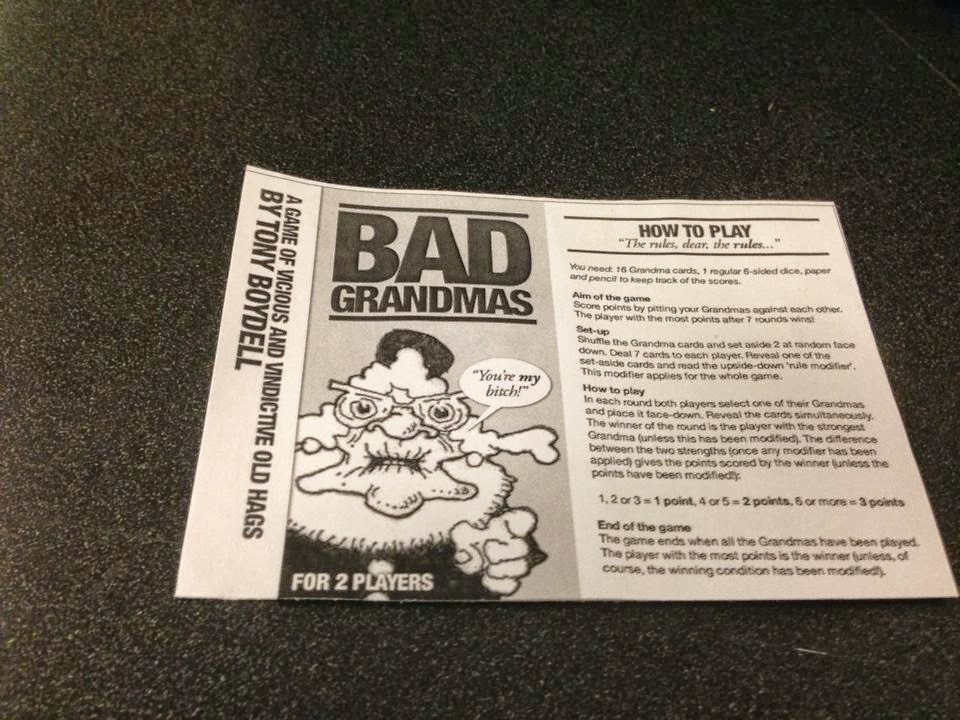To start my foray into understanding basic game design, I and a few friends decided to try out some print-and-play board and card games. These are games which are freely available online to print out and assemble yourself to play either by yourself or in a group. What a concept! We discovered, however, that finding a good game amidst all this clutter is pretty difficult. Here are some of our findings.
Space Junk
http://boardgamegeek.com/boardgame/26747/space-junkyard
Type: Board
Goal: Build as big a ship as possible by scavenging old parts from a space junkyard.
Time spent playing: 30 minutes
Time spent setting up: 45 minutes (the spaceships themselves were pretty fiddly to put together, and there were a lot of resource tokens)
I think we all agreed that this was the most fun and most successful game of the session: the aesthetics were clean and consistent, the gameplay interesting enough that there was some serious competition, and the print-and-play version was very well put together (note the absolutely adorable 3D spaceships). There were some mechanics that didn't quite synch up, though-- for instance, a trick that gave you a chance to gather two resources in one turn meant that we ended up having an almost empty board very quickly. A structured grid on which to lay the cards also would have been beneficial, as it became a game of randomly guessed layout very quickly.
Bad Grandmas
http://www.goodlittlegames.co.uk/games/02-bad-grandmas.html
Type: Card
Goal: Have the highest score by the end of the round by beating the opponent's grandmas (subject to change)
Time spent playing: 15 minutes
Time spent setting up: 20 minutes
This was an... interesting game. Judging from the site, it seemed like it was more of a conceptual game rather than one that focused on the mechanics. The drawings on the cards themselves were amusing, as was the descriptions, but the game itself seemed rather uninspired. I've played a number of versus card games of a similar style, and though this game does spice things up a little bit with it's 'take a card at the beginning and follow it's instructions when scoring' idea, it's not that impressive. The games themselves are short, and overall this game could benefit from having more cards and being play tested more. 2/3rds of the games we played ended in a tie.
Shape Up
http://www.boardgamegeek.com/boardgame/142068/shape-up
Type: Card
Goal: Match up your given card to as many adjacent similar shapes on the board (we weren't actually entirely sure what this meant)
Time spent playing: 20 minutes
Time spent setting up: 10 minutes
Out of all the games we played, this one was the one we were least enthusiastic about. It could have been that we were all operating on minimal brain power by that time and were looking forward to going to bed, but for some reason it just seemed to complicated for us. The rules didn't cover all the possibilities of card movement (was replacement legal? what did the little numbers mean in the corners?), we weren't sure what the exact endgame was, and it seemed to require the same knowledge of type pairing as poker did. In the end, we gave it up for dead and went back to playing Space Junk.







No comments:
Post a Comment